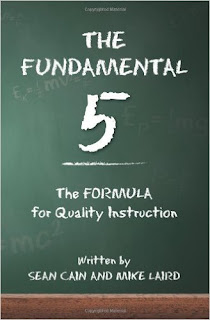...the Teachers Pay Teachers back to school sale is here! I have been hard at work all summer adding even more creative, professionally done, and engaging lessons to my store. So while you fill your days with sun and fun, I've been hard at work posting many of those products I've had a few requests for.
 Take at look at the newest addition to my store: Nuclear Chemistry Lesson Plan Bundle (Click on the picture for more details!)
Take at look at the newest addition to my store: Nuclear Chemistry Lesson Plan Bundle (Click on the picture for more details!)
I've organized the lessons into 45-minute intervals for easier teacher-prep and student understanding. Bellwork, power points, student note sheets, exit tickets, a quiz, and test are ALL included. Help your students differentiate between nuclear and chemical reactions, balance nuclear reactions, study transmutations, and relate the uses of radiation to every day life with this AWESOME lesson plan bundle!
Or how about some help implementing the NGSS? Try my Design Your Own Experiment Lab using Magic Capsules! (Click on the picture for more details!)
Students will pick from three variables to study. The activities is highly organized with sections for students to record their hypothesis, experimental variables, data tables, procedures, and conclusion. You'll love it because it's a cinch to grade! Perfect for reviewing experimental design in high school or reinforcing experimental variables in middle school. My students had a blast with this experiment last year and I know yours will too!
Maybe you don't teach chemistry, but need some help with classroom management? My First Days of School BUNDLE is sure to please! (Click on the picture for more details!)
Perfect for anyone who is looking to tidy up their transitions in between activities, ideas for rules, policies, and procedures, or any new teacher who really has no idea where to start with their classroom management plan. Many of my policies are adopted from Wong's book,
The First Days of School. If you haven't read it yet, I HIGHLY recommend you pick it up asap and read through the sections on classroom management. But hey, if you really don't have time to read the book, this bundle will at least summarize how to start you school year off on the right foot!
No matter what you're looking for, I firmly believe my store has something for everyone. Best wishes on a wonderful back to school season and sale!
Happy Teaching!
 Ms. Razz is an enthusiastic chemistry teacher in New Jersey. She often counts herself to sleep at night using molecules or by reciting Avogadro's number. (For real.) She believes that every student has the power to learn anything, even chemistry. After all, she remembers this hustle didn't always come easy to her. She's also a Teachers Pay Teachers seller and you can view and purchase her lessons here.
Ms. Razz is an enthusiastic chemistry teacher in New Jersey. She often counts herself to sleep at night using molecules or by reciting Avogadro's number. (For real.) She believes that every student has the power to learn anything, even chemistry. After all, she remembers this hustle didn't always come easy to her. She's also a Teachers Pay Teachers seller and you can view and purchase her lessons here.
 Ms. Razz is an enthusiastic chemistry teacher in New Jersey. She often counts herself to sleep at night using molecules or by reciting Avogadro's number. (For real.) She believes that every student has the power to learn anything, even chemistry. After all, she remembers this hustle didn't always come easy to her. She's also a Teachers Pay Teachers seller and you can view and purchase her lessons here.
Ms. Razz is an enthusiastic chemistry teacher in New Jersey. She often counts herself to sleep at night using molecules or by reciting Avogadro's number. (For real.) She believes that every student has the power to learn anything, even chemistry. After all, she remembers this hustle didn't always come easy to her. She's also a Teachers Pay Teachers seller and you can view and purchase her lessons here.




















